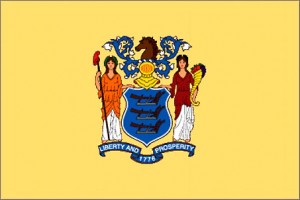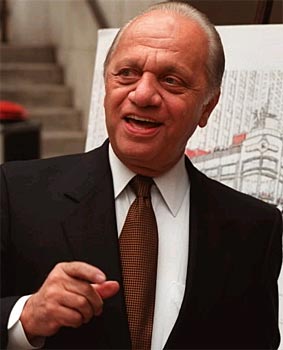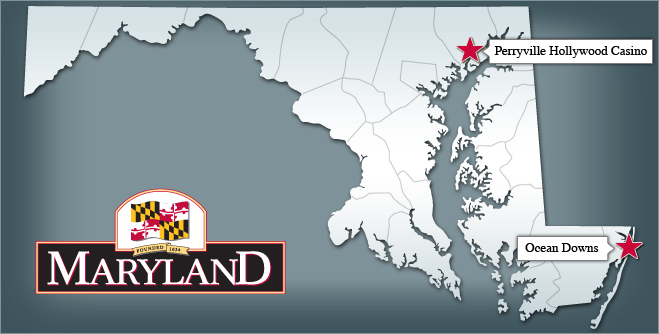 I’m one state closer to making the “under” on my over/under of states likely to put online wagering on the docket this session. Both houses of the New Jersey Legislature have given their approval to a bill that now goes to Gov. Chris Christie for his signature. Based on his rhetoric to date, Christie is likely to veto it; he’s so far not been inclined to provoke a potential showdown with the Justice Department. Unlike recent congressional action that contemplated legalized online poker, the Garden State bill would legitimize intrastate Internet play of practically every casino game you can imagine, including sic bo and red dog … but, gosh, somebody forgot to include faro.
I’m one state closer to making the “under” on my over/under of states likely to put online wagering on the docket this session. Both houses of the New Jersey Legislature have given their approval to a bill that now goes to Gov. Chris Christie for his signature. Based on his rhetoric to date, Christie is likely to veto it; he’s so far not been inclined to provoke a potential showdown with the Justice Department. Unlike recent congressional action that contemplated legalized online poker, the Garden State bill would legitimize intrastate Internet play of practically every casino game you can imagine, including sic bo and red dog … but, gosh, somebody forgot to include faro.
The devil is in the details and Dr. David G. Schwartz has found a few that might play hob with the bill’s chances of getting past Gov. Christie’s desk. In the short term, it provides some economic relief to the horsey set (whose favorite animal surmounts the New Jersey coat of arms), who would otherwise be weaned off of casino-paid subsidies. But after a year, the effective tax rate falls to 23% from 52% … fewer oats for the ponies. Casinos will have to set up their ‘Net-bet infrastructure stateside but that short-term inconvenience could, in the long run, ease the concerns of both Capitol Hill and regulators in states like Nevada who look askance at, for instance, Caesars Entertainment hopping into bed with offshore Internet casinos as a quick-and-dirty way of getting into the online action. If Christie signs S490 into law, expect greatly accelerated legislative consideration elsewhere. This train is leaving the station and state governments aren’t going to want to get left on the platform.
 The Angelos Amendment. It’s try, try again time for the great state of Maryland to try and scare up somebody worthy of its Baltimore casino license. (A second, in rural Rocky Gap, has gone begging.) Despite a 67% tax rate and a $21 million package of fees owed to the city itself, the Baltimore site is (quite surprisingly) finding some takers. These include Canadian private equity house Clairvest, which has been shopping around the U.S. for casino opportunities, most recently getting rebuffed by voters in Oregon. Other companies sniffing around for opportunities include comeback kid Isle of Capri Casinos, while Penn National Gaming wants to reopen the question of slots at Laurel Park racetrack.
The Angelos Amendment. It’s try, try again time for the great state of Maryland to try and scare up somebody worthy of its Baltimore casino license. (A second, in rural Rocky Gap, has gone begging.) Despite a 67% tax rate and a $21 million package of fees owed to the city itself, the Baltimore site is (quite surprisingly) finding some takers. These include Canadian private equity house Clairvest, which has been shopping around the U.S. for casino opportunities, most recently getting rebuffed by voters in Oregon. Other companies sniffing around for opportunities include comeback kid Isle of Capri Casinos, while Penn National Gaming wants to reopen the question of slots at Laurel Park racetrack.
It’s an interesting dilemma for lawmakers: Do you go back to the voters for more casino sites (and probably for more games, too) when you can’t allocate the ones you already have? Conversely, does being unable to find bidders for predetermined locations justify precluding unapproved venues from being granted casino status? The 800-lb. gorilla likely to force the issue is Peter Angelos (above). Not content to have visited decades of mediocrity and worse upon his Baltimore Orioles and their long-suffering fans, the irascible sports mogul wants to get into the casino business. However, his preferred site — bankrupt Rosecroft Raceway — isn’t approved for any of the state’s five licenses.
Not yet, anyway. Angelos’ $14 million bid is the stalking horse which all others (who might include ubiquitous Penn National) must surpass. Elected officials have twice balked at adding new forms of gambling to Rosecroft. Furthermore, any expansion of gambling to include Rosecroft — or Laurel Park, for that matter — has to be put to a statewide vote. Given who its driving force is, expect such a constitutional question to be dubbed “the Angelos Amendment.”
 Caveat emptor. Anybody buying into Maryland’s casino industry, with its highway-robbery tax rate and lack of table games, would do well to consider the early performance of Penn’s Perryville slot parlor. (Yes, the same brand-new one Penn offered to close down if voters would please, pretty please kick Cordish Gaming out of Arundel Mills Mall.) While it’s averaging $9.2 million per month (comparable to some of the bottom-tier casinos in Atlantic City), that number doesn’t tell the whole story. Hollywood Casino Perryville opened robustly enough, taking in $245/slot/day. That was down to $169 within a month, withering to $141 (or a $5.6 million gross) in December, the curiosity factor having clearly abated. That’s a 42% decline, alarming numbers … especially with so much competition just over the state lines in Pennsylvania and Delaware. Casinos in Maryland may be a good thing but they’re far from a safe bet.
Caveat emptor. Anybody buying into Maryland’s casino industry, with its highway-robbery tax rate and lack of table games, would do well to consider the early performance of Penn’s Perryville slot parlor. (Yes, the same brand-new one Penn offered to close down if voters would please, pretty please kick Cordish Gaming out of Arundel Mills Mall.) While it’s averaging $9.2 million per month (comparable to some of the bottom-tier casinos in Atlantic City), that number doesn’t tell the whole story. Hollywood Casino Perryville opened robustly enough, taking in $245/slot/day. That was down to $169 within a month, withering to $141 (or a $5.6 million gross) in December, the curiosity factor having clearly abated. That’s a 42% decline, alarming numbers … especially with so much competition just over the state lines in Pennsylvania and Delaware. Casinos in Maryland may be a good thing but they’re far from a safe bet.


To be fair, Perryville kinda sucks. From the south you have to go through at least one if not two toll barriers plus a lot of lousy traffic. Rocky Gap has the unfortunate luck to be in the middle of nowhere after all the traffic going to the PA turnpike exits the interstate that goes by there.
There was some talk in the past of card games at Rosecroft and/or Laurel. That seems more likely than more slots IMO.